EP.1 - Chapter 1 - THE ACCIDENT
Welcome to the first episode of the Crashing Into Potential Podcast. After speaking with many teachers about how they are teaching the book in their class, I had noticed that many of them are reading it to their students. This is simply because their students don’t like reading. (I get it! I hated reading growing up too. In fact, before I wrote Crashing Into Potential, I had read LESS than a handful of books in my life).
This may be for a number of reasons; students may be illiterate, not confident in reading, or simply can’t be bothered because they’re too slow. I’d hate for these students to miss out on the lessons they could learn from my experience; this why I would like to read it for them.
In this episode, you will hear the Preface and Chapter 1. These chapters cover "PRE" accident, and the accident itself.
If you like this episode and want to continue listening, please hit the subscribe button so you don’t miss an episode.
Here are some pictures, taken on the last day that I can remember of my old life:
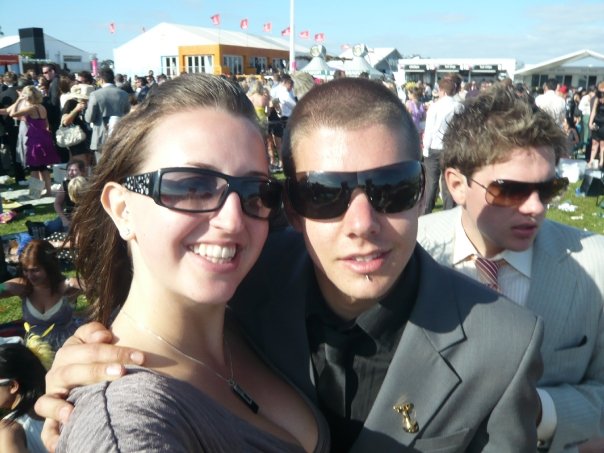
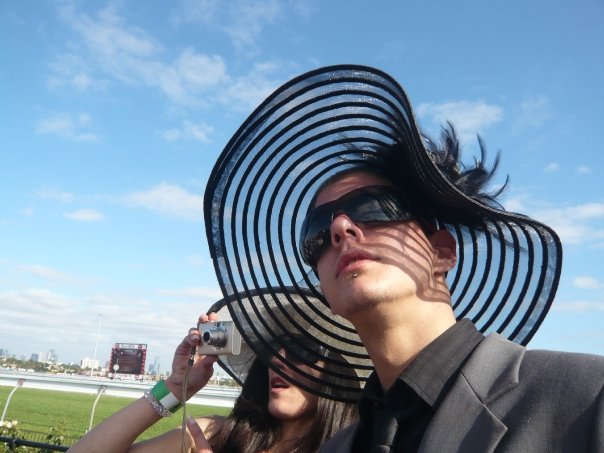
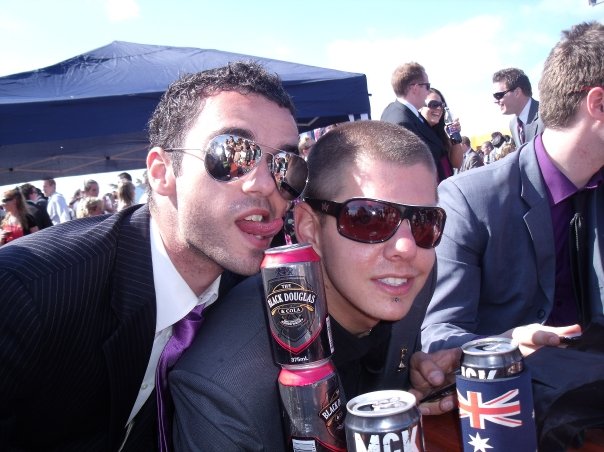
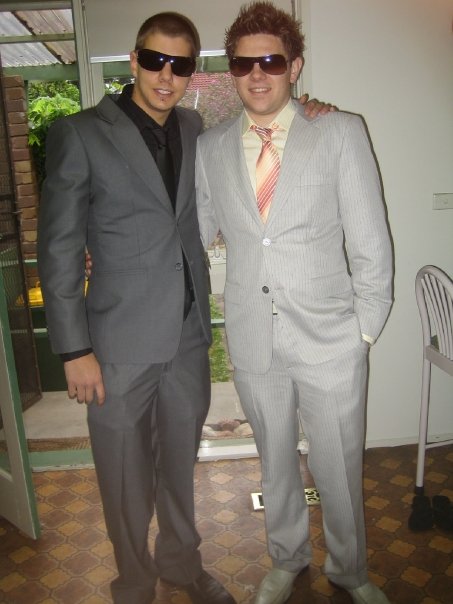
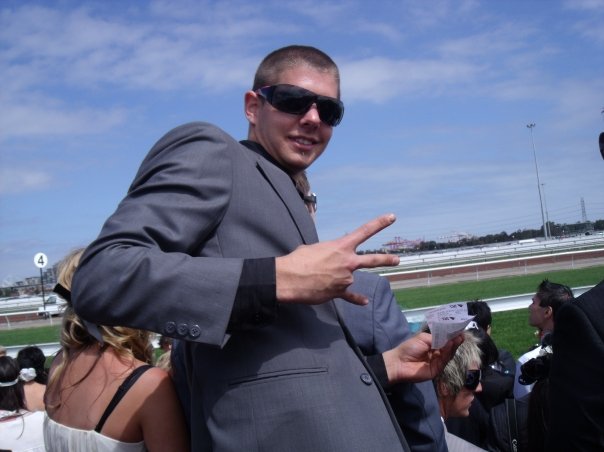
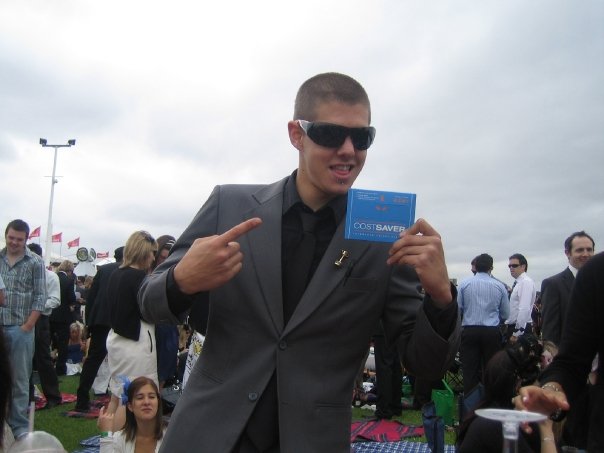
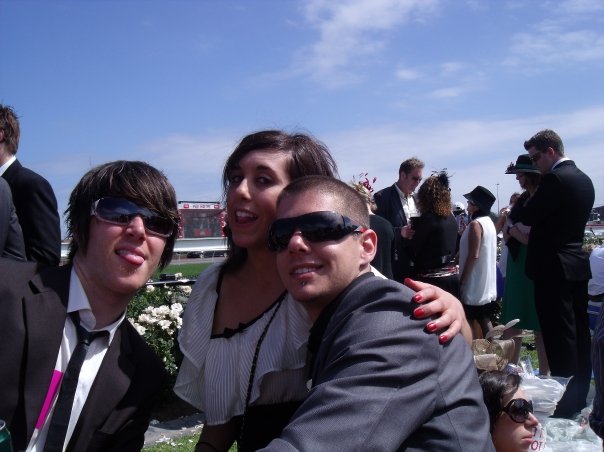
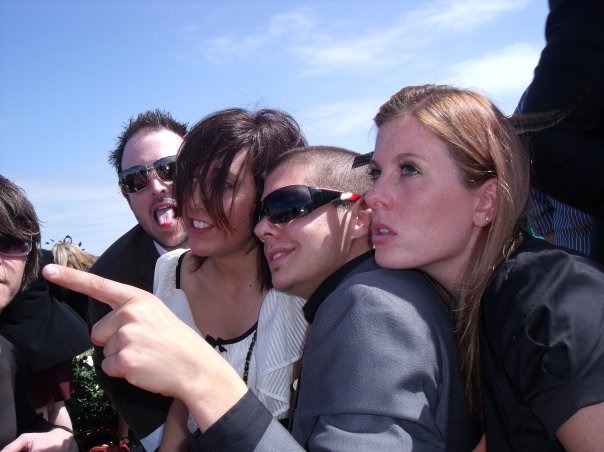
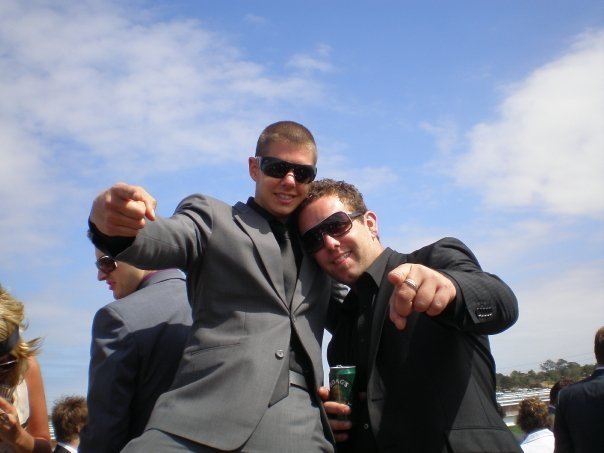
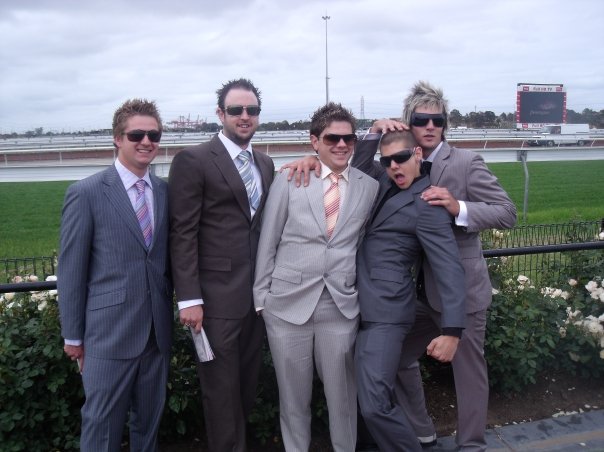
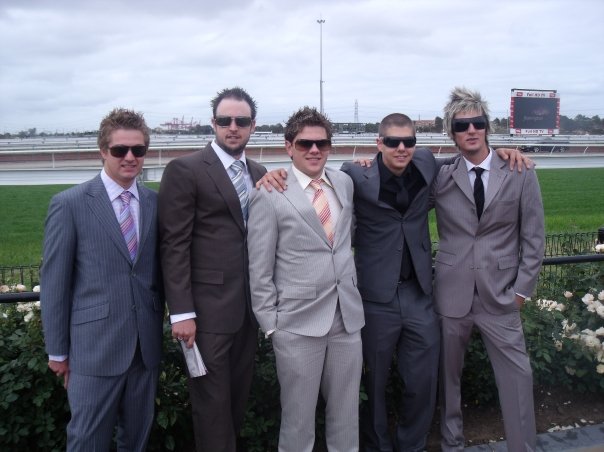
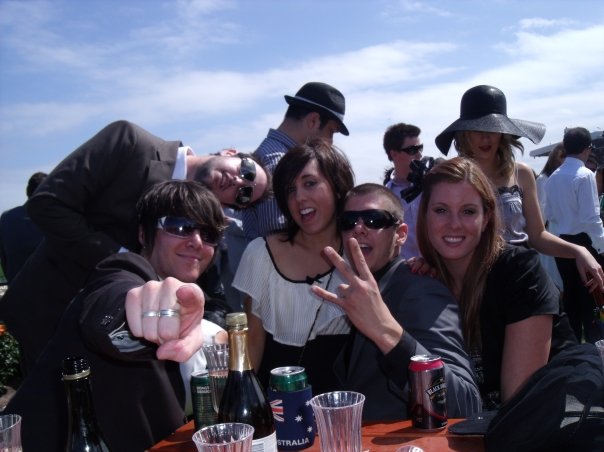
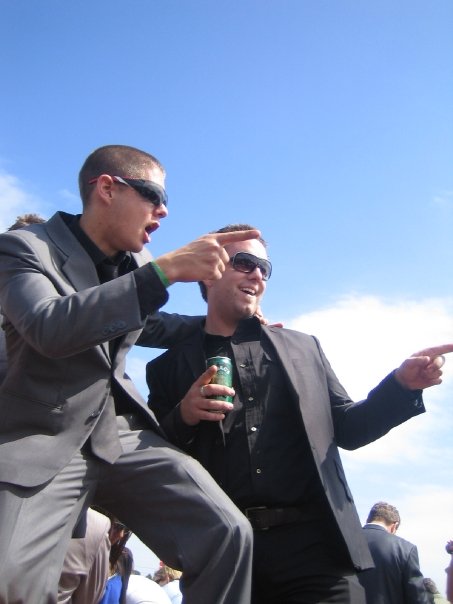
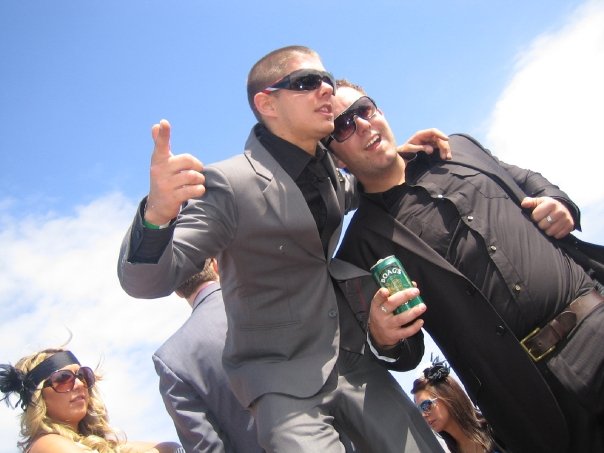
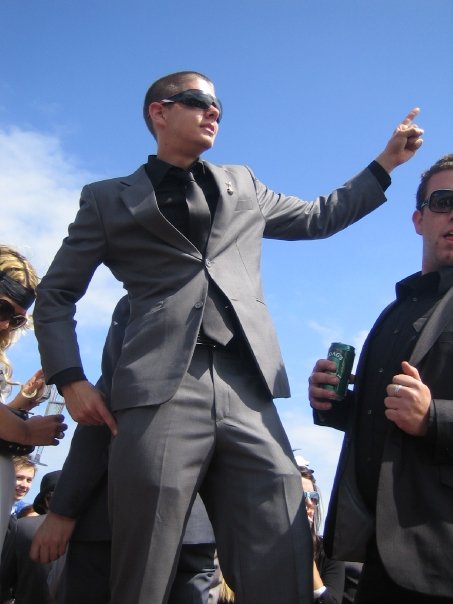
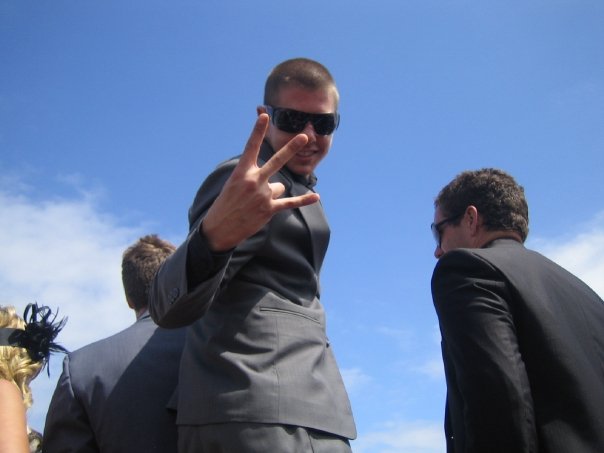
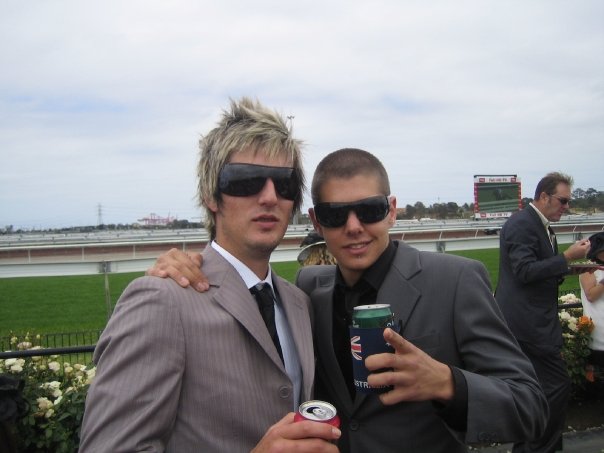
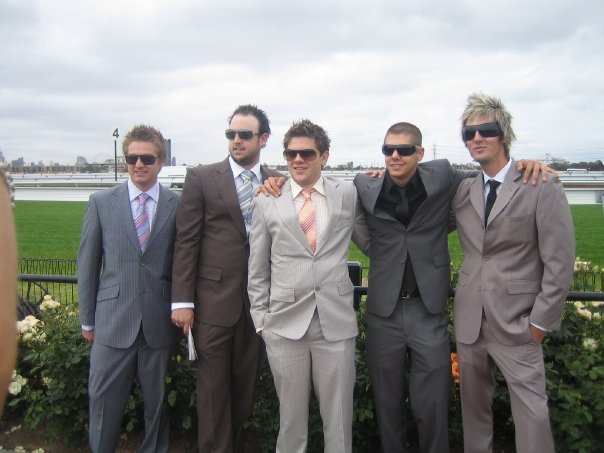

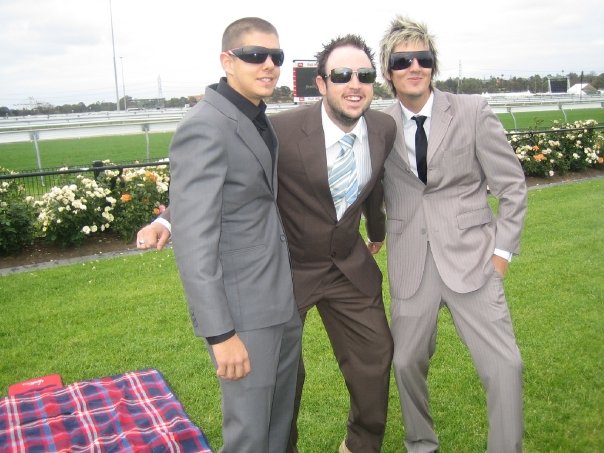

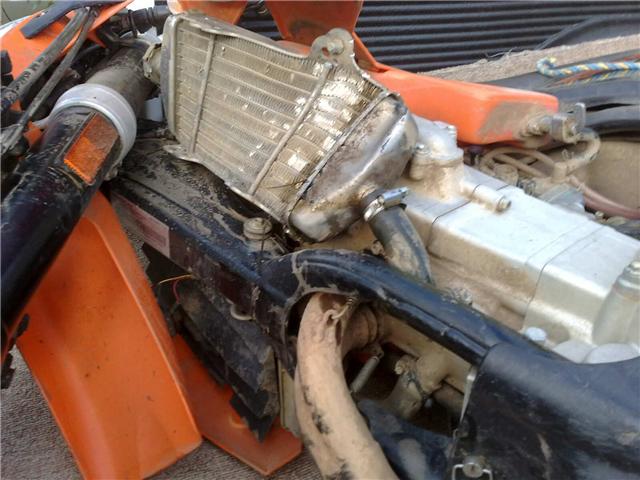
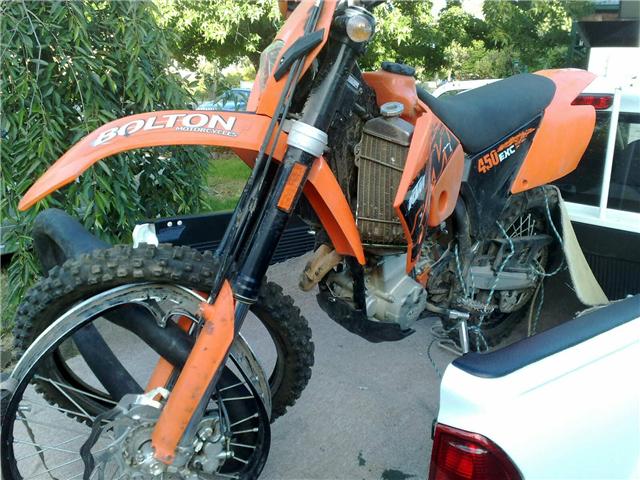
Let’s connect
Facebook - @TheInjuredBrain
Instagram - @TheInjuredBrain
Twitter - @TheInjuedBrain
LinkedIn - @TheInjuredBrain
Email – scott@scottbharris.com.au
Speaker 1: (00:00)
Welcome to the first episode of the crashing in potential podcast. Today, we are going to be reading the pre-phase and chapter one up to page 14, enjoy folks.
(00:22)
Welcome to that crashing in a potential podcast. The next of the wall, we're going to be talking about resilience that is getting back up after that you have been knocked down. My name is Scott Harrison on the author of the book crashing in dental, living with my injured brain. It's a memoir that I have written and published that outlines my story of resilience. After a major motorbike accident, I came very close to killing me. This podcast is designed to take what's inside of me and bring it out so that you can feel motivated to crash into your own potential brace heayouself because the podcast is about to start. [inaudible]
Speaker 1: (01:15)
welcome to the first episode of crashing into a potential. First off, I would just like to show my gratitude for you taking the time out of your day to listen to what I have to say. Time is the most precious resource that we can never get back. So I appreciate you spending your most valuable resource on listening to me speak. So thanks now, initially, this podcast is just going to be me reading the book to you and in the future, um, I will be taking a bit of time and we might talk about the process of writing the book, the process of publishing the book. But initially, to start with, I'm just going to read you the book so that you can learn my story before I start. I just want to quickly talk to you about why I'm reading this book out loud and what this, what this will mean to me in my life.
Speaker 1: (02:09)
Now, quick side note that he is, if, if you don't, if you are a good reader, if you're a competent writer, this podcast may not be as exciting for you as other people that aren't competent readers because my reading is very, very slow and it's, it's not as well on the 35 year old person. And my reading should be a lot, lot better. Now there's a few, there's a few reasons for this, but the biggest reason is that I never read growing up. I never read growing up. I hated reading and I can honestly count on my hand and that that's one hand how many books before I started writing this book Crashing Into Potential I could count on my hand, one hand, how many books I read in my entire life. So I was not a reader. And then I, then I went and wrote the book and I started writing the book.
Speaker 1: (03:09)
And that was when I started reading. So that was in 2016. Now I know how to read. That's not the problem. The problem is the speed of my rating and getting all the words muddled up. I mean, I've read, I've always read the newspaper of, of, of, of read everything that I've read online, um, and on the social media and everything. So reading is it's doable for me. It's just that I cannot read fast and I cannot read out loud, fast. Now a goal that I've set for myself has to be is to become a better reader. Now that's not necessarily reading to myself because, um, you can, you can skip words when you're reading to yourself, although I'm not the best skim reader. And I am a very, very slow reader even to myself, but this is reading out loud. You know, I often watch the news or watch a, a TV show where somebody's reading from teleprompter.
Speaker 1: (04:07)
And I think to myself that I probably wouldn't be able to do that job because I cannot read outlet. And I sometimes think to myself, I imagine myself in front of the camera reading out loud and it just, it scares me. It scares me, scares the pants off me. So that's why I am reading this book to you. To help you keep track of where I am in the book. I will be reading the page numbers. When I can remember to read the page numbers, I'll be reading the page numbers and the chapter numbers to help you read along and help me follow along with the book. So without further ado let's get started. So I've opened up the book and I'm going to read, uh, the imprint page of a little bit of it. And that's only because it's got all of my social media information on it and everything you can find online.
Speaker 1: (05:02)
So my website and my blog are at www.scottbharris.com.au. My Facebook page is @theinjuredbrain. My Twitter is is @theinjuredbrain. My LinkedIn is www.linkedin.com/in/theinjuredbrain. And my Instagram is @theinjuredbrain. So everything is @theinjuredbrain. This is the dedication. I dedicate this book to the staff at rewired hand therapy and the staff at Epworth rehabilitation center to the transport accident commission TAC in Victoria and to my family, the support, my mother, Deborah and father Victor have given me through this journey have been a solid foundation for all my achievements. I don't know where I'd be without you. So thanks guys. I love you. And I owe more than you could ever imagine my family that is, although I still have a soft spot in my heart for the rest of you folk to, uh, the forward, I'm not going to read the forward.
Speaker 1: (06:19)
It is written by John Sylvester. John Sylvester is a writer for the age newspaper, and he's also my uncle, uncle John. So I shout out to you, John, if you're listening. Page number one, this is the preface and it's called resilience and at the start of every chapter, I have a quote. So the quote for this chapter is resilient in the face of adversity. What does that really mean? Resilient? One springing back rebranding to returning to original form or position after being bent, compressed or stretched three readily recovering as a form of sickness, depression, or the like adversity, one adverse fortune or fight. I condition my Mark by misfortune calamity or distress to an unfortunate event or circumstance. This was from the Macquarie dictionary. Resilient in the face of adversity means that you are capable of recovering from misfortune. Being resilient is different for everyone.
Speaker 1: (07:31)
It doesn't mean that you have to overcome the type of adversity I have, but you can get through whatever tough times you're faced with in your life. You may not know it yet, and it may be hard to see right now, but believe me, when I say that you are capable of getting through these tough times in this book, you will discover what I've learned along my journey. And perhaps you can use some of these tools in your own life when you need them. I spent the last nine years learning from the masters in this field, my therapists, this is page two. Some of my therapists have been helping others overcome adversity for 40 plus years. So when they they speak, I listen in 2008, I started the most amazing journey of my life, a journey to reengage with the society and with my body and brain for 23 years, I've been living a full I've been living full of life, enjoying the freedom of a world that I lived in waking, waking up every morning with an able body until one day when everything changed.
Speaker 1: (08:42)
And I no longer lived in a world that could give me this kind of flexibility. The tattoo on my back raised 15, 11, 2008. They smacked the dial. I was involved in an accident that nearly took my life. This accident made me who I am today, and I would not change it for the world. I don't believe that everything happens for a reason. Instead. I believe that everything in life is about the reasons we'd give to these happenings. I write about the reasons I I've given to the happenings in my life, in the pages of this book. This journey has seen me go from the very top of what I could hope for in life. When I was having so much fun to the very bottom, which had me fighting my way through depression as a result of a traumatic event of they've, I've had days that I did not want to end.
Speaker 1: (09:36)
And I've had days where ending it would have been the easy way out throughout this time. I've learned a lot about myself, a lot about my own capabilities and a lot about the way in which humans realize their greatest achievements. I believe this all comes down to the goals that we set and the goals that we achieve. I was forced to set goals when I was at the bottom. The magic that has come from this has been incredible. Goals have been the backbone to my successful recovery. And I owe a lot to the people that brought them into my life. Goals have essentially been the roadmap to my recovery. They have given me a path to follow for the last nine years. Part one of this book is about what happened to me from the day of the accident from the day of the accident on you will journey with me through all of the turmoil that my life has thrown at me.
Speaker 1: (10:33)
You will see what I went through and the struggles I've faced only to come out the other side with a great appreciation for life and the people around me. Part two of this part, two will show you through my own experience. What, what can be, what can sorry, part two, we'll show you through my own experience, what you can do when you believe in yourself. If you come to the end of this book and you find yourself looking at the brighter side of a one stock and existence, I would love to connect with you. You'll find my details at the front of the book, which I've already read out to you just as a side note, I don't want this book to be just a story. I want this book to be a book of inspiration. I want you to go out and achieve great things in your own life, because I believe that we are all capable of doing this. Remember somebody remember, as somebody wise, once said, falling down is an accident. Staying down is a choice. Part, one meeting adversity, head on, and he sees page number seven.
Speaker 1: (11:51)
Chapter one, the, the court is shit happens. Harris family. I had a great childhood. Some would say some would say I was an active kid. I spent a lot of time at sod running around any sport I played. I loved until I wasn't the best. And then I'll quit. At one point I was kayaking, which I really enjoyed because that was something I was good at my bar. My brother, Brett, and I will be up at 6:00 AM in the middle of winter, out on the river paddling. We both loved it. When I went to the Australian championships are won one gold to silver and a bronze medal. After that, I took six months off due to injury and bad health. When I returned to the sport, I was no longer winning. This was the early nineties and by the naughties, uh, I'd given up, I'd quit because I wasn't the best anymore.
Speaker 1: (12:46)
Now some of the guys that I paddled with have been in competed in the Olympics. It's easy to look back at life and think what if this question has crossed my mind so many times in the last decade, I spent hours thinking about it. The conclusion I always come to is that I can't do anything about it. So just move on. I can't change the past. So just move on. I've got my first job when I was 15 flipping burgers and making coffee at the local McDonald's, in my opinion, this was the best job around because not only did I get to work with 120 other kids my own age, I also made some lifelong friends. This is page eight.
Speaker 2: (13:35)
Okay. Granted
Speaker 1: (13:37)
Work was hot and greezy. And I hated getting up at 4:30 AM when I had set up in the morning, but it taught me what real work was. And that in itself looks unbelievable on a resume. After five years, it was time to move on. But when I finished my tertiary education, I was jobless and I had no direction. I had done an, an advanced diploma in digital graphics at JMC Academy in Melbourne. My, my big dream was to one, one day work for the marvelous Pixar studios in California. I can imagine being part of the next big story, toy story flick. That was until I discovered this was a dream shared by literally thousands and thousands of other people with a fixed mindset. I believed that the competition was too great. So I gave up, I lost interest being lost. I was starting to wonder where my life was going to go from here.
Speaker 1: (14:44)
I found a job working at a local cafe, serving ice cream at Melbourne's square. But when the winter came around, I no longer had any income because winter in Melbourne is cold miserable. And no one is on the search for ice cream. After six months, I was jobless again until my brother came to the rescue. He was an electrician and his boss was on holidays. They were in native some hands and any hands would do. So I put one up to help out. I fell in love with, I fell in love with it. I worked for three weeks and then more money than I had ever seen in one paycheck. So when the boss returned, I asked him if I could do an apprenticeship, I started working full time all over Melbourne from high rises to industrious estates, to private homes. We worked in many of the manholes on the side of the road, connecting fiber networks across the city of Melbourne, sometimes Sydney and even Perth.
Speaker 1: (15:50)
We did a lot of work in new and old buildings, including old schools from the 1860s. You can imagine how fascinated a young man like myself was climbing through rooves and under buildings that were over 150 years old. My job was so diverse that I could be working in an old building on Monday, building a new factory in Tuesday. And then every Wednesday, I ha I headed off to trade school with an awesome group of boys. This is page nine. We will put our feet up and have had some fun. Our class was jam packed full of young men, all full of testosterone. Having a day off work together. It wasn't all that productive, but I loved it. Thursday would be under, under the city working and Friday would knock off early knocking off required going back to the factory and algorithm and having a bead recap the week, my life consisted of no responsibilities, no worries.
Speaker 1: (16:48)
And all the freedom in the world at the time, I liked the thought of working for the man and not taking life too seriously. Oh, did I mention adios? Yes. Every second, Monday was a rusted day off just because it was fair. Well, that is what the trade union argued. Anyway, this was 2006 and by 2008, I was loving what I did every day of the week. I loved my work because I made some great nights. I made some great money and I had the weekends to do what I wanted at that stage. I was at that stage, I start started to think a bit about what would happen after I finished my apprenticeship, which was the first grownup thought of my life. I considered traveling overseas and working abroad for a year as my sister had done in the years before it was coming up to the spring racing, carnival melons, premier horse racing event, which I had attended the past two years that year, I went along with a great group of people.
Speaker 1: (17:59)
We had been mates for years and I had the best time I'd ever had at the carnival. I remember that day. So clearly I got up super early, just as I had on the first day of the carnival in the past, I woke up before my alarm and felt great from an early night, I prepared myself. If the day turned out anything to be like the previous years, it was going to be a big event. I jumped out of the shower as quick as I jumped in grabbing my race attire. I got in the car ready to go all in the space of about 10 minutes. I had a tendency to get over excited about, about things that I knew would be fun. That's just who I was. I was the first to arrive at my brother's house and he had a beer waiting for me.
Speaker 1: (18:50)
Brett was already dressed in his suit and was just as excited as I was. I changed into my costume, a perfectly tailored gray suit from Thailand. I put on my new Prato sunglasses and a few sprays of cologne looked in the mirror and quietly thought, it's going to be a good day. You're looking at okay today, mate, this is page 10. I went out to the kitchen and said to everyone, let the games begin while I'd been obsessing with myself over in the mirror. And, and Celeste had arrived to join the party shortly after Dave, Chris Trev and AKI and Kate walked in and really got the ball rolling. It was seven 30. I am at this stage, which was rather early to be statting the antiques, but to get a good spot on the grass smack bang in the middle of the riffraff, you had to be, you had to be early on top of that.
Speaker 1: (19:49)
We still had to find a cab and Mike, our way there, really the reason we start, we started so early. It was because we all knew what the day had in store for us. And this was the first time in three years I had, I was going there as a single man with no one looking over my shoulder and no one to answer to. I was prepared to get loose. Everybody in the cab said was the coal to head off to the rim, Flemington rice calls. We got there just after the Gates opened and Mito wide to the 300, made a mock at the end of the general admission on the home straight, the grass looks so fresh and the papal looked so clean, but you knew that in just six hours time, the bomb would go off and everyone would, would leave the venue.
Speaker 1: (20:36)
Looking like it they'd been there. There had been a meltdown. It did every out of the year, what would have changed? Nothing to our delightful surprise, solid had been installed on the grass that year. And we were lucky enough to snag one and enough chairs. It was still a few hours until the first race, but we didn't really care because we were there in our position ready, ready to take on the day. Once the bar opened, things got to be blurry in my mind as to what actually followed. My only memories of that day were the photos that were taken. And the fact that I knew I had fun. I knew I was with great friends, and I knew that my wallet was crying due to the weight loss. I was hoping for another bow box trifecta Lockhart won the previous year in my total gambling career.
Speaker 1: (21:30)
I was definitely up as I had won $1,000 the year before. And I'd never spent that much on gambling in my life. I really wasn't a big gambler. The spring racing carnival was the only time that my wallet came out to gamble. I knew that it was dead money as soon as it touched the Bookie's hand on top of and on top of the gambling, which wasn't all that much in the end, there was the cost of drinks that seemed to go up and up and up each year. I guess that's just the price you paid to participate in one of my ones, great festival. This is page 11 in what seemed like a millisecond. I was in a hospital bed a month later, looking up at Jacqueline, who was my brother's girlfriend at the time who was playing here, comes the airplane with a spoonful of slop confused.
Speaker 1: (22:21)
So was I a couple of weeks after the spring racing carnival, I had a motorbike accident that resulted in the worst day of my life. This was the absolute hottest time for everyone in my family, too. They are forever haunted. By the 16 days, I was in a coma, unsure whether I would wake up, let alone be able to live a normal life again for my path. I was not consciously present. So I had no memory of it at all. Now I'm going to go out of the book here and just talk about quickly, the feeling of, of the coma. And this was the most, this was the honestly the most surreal feeling. Have you ever it, I really honestly felt like it was a click of somebody's fingers and I was one minute I was at the carnival and the next minute I was in a hospital bed and it was a month later.
Speaker 1: (23:22)
It was, it was just, it was bizarre. And I guess you could probably compare it to going into, uh, into, into surgery when you go into anesthetic. When you, when they say you can't attend one, two, three, four, and you're dead. And then all of a sudden you wake up and you're in your hospital bed. Well, that was kind of like what it was, but my operation went for four weeks. Um, I was unconscious for four weeks, so it was just really weird and kind of, I thought about it so many times over the years, this is exactly what it would feel like to, to die, to pass away. The lights would just go out and then this, this will get you thinking when the lights do go out, where does your mind go? Just think about that forbade. Okay. Back to the Volk. I was with my mates on Saturday, the 15th of November, 2008, riding my dirt bike on a property in Smiths gully in Melbourne's outer North East.
Speaker 1: (24:27)
It was at the very end of the day when I decided to go down to garden for one last lap of a paddock. Before heading back to the house, I was going to meet another group of mates for some springtime fun in the sun, around the pole. I got to the end of the paddock, turned around and rode back up the Hill, but it had a bend in the track before opening up to a landing. It was about a hundred meters long. I was going fast. If you've ever written a motorbike, you know, the rush I would have been feeling at the time, the best way to start the Hill was to give it full throttle and keep it pinned all the way to the top because at the top was my best chance to pop on the back wheel and nearly wet my pants with excitement.
Speaker 1: (25:16)
We touched on the idea of riding down another track on the Hill to avoid having an accident, but this wasn't a role and it wasn't set in stone. I chose the one with the bend. I was in the wrong place at the wrong time, on the wrong day of my life. I ran into my mate who was riding down the same track at the same second that I was boom, lots out handsaws. A bitch. When it wants to be is page 12. The carnage looked like too angry. Willdabeast had fought in the world except our wielder base were too Katy and four 50 dirt bikes. Another mate was following behind me and saw everything happened. He said it was like watching a finishing move in, in modal combat in slow motion. He could say what was happening, but was helpless to stop it. We hit each other head on.
Speaker 1: (26:18)
And when I say head on, I mean, head on our front wheels along perfectly, you can say the imprint of his wheel in mind, the might following, following through his bike down and ran to help. He knew that both of us were in serious trouble. He was shouting in my face. Scott, Scott, Scott, no response. He ran over to my mate who did and did the same, like a sequel in a horror movie. Neither of us were responsive. Another two mates, another two mates, brothers who lived on the property. Finally caught up with us. The first guy arrived and felt, felt his heart sink because he, for a split second, he thought it was his own brother who was in trouble and on the ground and not moving from the time of the accident until the air ambulance flew me away. Everything ran like clockwork.
Speaker 1: (27:14)
One might Dave rode straight to the house to call triple zero. His, his brother, Ryan rode to the front gate and our other mates stayed with the tour of us to make sure that we were still breathing. There were five of us. There were five of us riding that day and two of our lives dependent on the teamwork of the other three. I am so grateful that I had the mates that I had mates with me and I really proud of the teamwork that they were, that they put in that day. Sam, the man that I hit stood up at one point, took one step and hit the deck. Now just a quick side note is that Sam is not his real name, but for privacy reasons, uh, we've kept his name out of it. And we have decided to call him Sam. He was extremely lucky because unknown to anyone, he had broken his neck.
Speaker 1: (28:09)
A few, a few, a few more steps could have left him banned to a wheelchair for the rest of his existence on earth. I contrary to popular belief was the luckiest at the time because I was knocked out cold. I didn't budge with a state. My neck was in any slot movement could have had, could have had me writing this book from a voice activated Dictaphone. The ambulance arrived within 15 minutes only to find there was no way to drive down through the goats track from where they were to the other, other end of the property. Right? Then another star moved into alignment out of four ambulance helicopters that operate in the whole state of Victoria. The tour that were close enough were told to turn around and come to our aid. This is page 13. This was because Tom was definitely not on the outside.
Speaker 1: (29:08)
It took them only 20 minutes to get there. Which if you think about it is amazing because they're because there are only four helicopters covering 237,629 square kilometers of land in Victoria to put that into perspective, that's nearly England, Ireland and Switzerland combined. Once I had landed, it was taught to remove my helmet, which was the only thing, holding my scout together and stopping it from exploding. I still have the helmet with a, of crusty blood on the inside. It's a token from God on a day in history that could have eat, could have resulted in many laws, destroyed a quick side note is that that's how man is now on display at the Banu Nillumbik tech school. Uh, they're doing a, they're doing a program that is about, uh, about safety equipment from motorbikes. And I have offered to give them my helmet to put on display.
Speaker 1: (30:10)
There are many, many people that saved my life that day for paramedics, for police, many doctors, nurses, dental, surgeons, neurosurgeons, neurologists, radiologists, and a whole plastic teams. The list goes on, but the guys are truly I'm on laughter on that dark, but sunny spring day, when my mates, the boys that were there with Sam and me came together and put in some pretty amazing teamwork. And for that, I'm truly grateful. The accident wasn't just brutal on me. Sam had intense damage, intense damage to his body, to his injuries, included several fractured, vertebrae and bones, a punctured lung lacerations and dislocated knee. He experienced severe blood loss resulting in seven blood transfusions. Sam has also been recovering both mentally and physically from the accident and has since changed his career path. The accident made him realize how vulnerable and fragile life is, and he no longer wanted to waste his time doing anything that didn't make him happy.
Speaker 1: (31:21)
He just saw that his passion was flying aircraft. So he got his pilot's license and now flies planes for a living hell calls that. So that's the end of chapter one. And I'm going to stop there. We are now on page 16 to start chapter two. Uh, I hope that that's me reading this book out. Wasn't too painful to you. And I noticed, I noticed that as I was writing, I, you wouldn't be able to tell because I've edited, edited all. Uh, but after about two or three pages, my brain just starts to lose concentration and are just, my words were going haywire. So I'd have to take a break, get a drink, and then start back again. I was really frustrating, but we'll say, we'll see how we go by the end of the book. Hopefully this, uh, this, this, uh, this process of reading out loud is a little bit better and I'll be able to maybe one day, write off a teleprompter who knows see you back here next week when I will be reading chapter two, chapter two, just so you know is called landing in hospital. So we'll see what happens when Elaine and I are in hospital. See you next week, guys.
Speaker 3: (32:44)
That's it for today. If you liked what you heard, hit the subscribe button. So you do not miss an episode that is still hit the subscribe button and leave a review. See, in the next episode,

